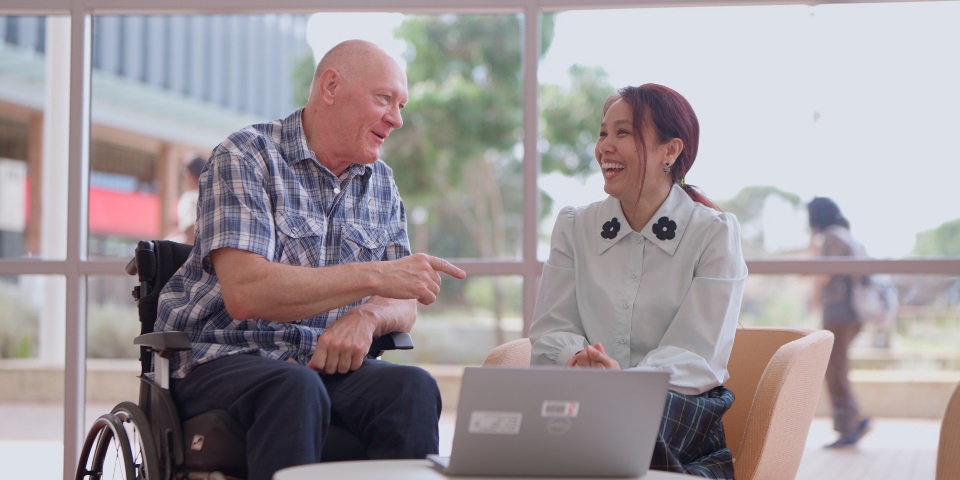News
Research centre promises to reshape the way we treat diseases

Murdoch University scientists are sharpening their focus on the development of personalised treatments for rare and inherited diseases with the launch of the Personalised Medicine Centre (PMC).
The collaborative research centre between Murdoch University and the Perron Institute was formerly known as the Centre for Molecular Medicine and Innovative Therapeutics and has played a world-leading role in the development of antisense therapeutics. This treatment is akin to genetic whiteout – allowing the body to skip over disease causing errors – and has promising applications across a broad range of conditions.
The team have already developed three FDA-approved drugs for Duchenne muscular dystrophy with the pioneering therapeutic and are currently exploring treatments for over 50 other conditions, including motor neurone disease, type 2 diabetes, and muscular dystrophy.
Professor Anthony Akkari, Director of the Personalised Medicine Centre, said the application of this approach and other therapies that are tailored to patients' unique genetic makeup, lifestyle, and needs, would ultimately reshape how we treat diseases.
“We believe personalised medicine has the power to revolutionise healthcare, offering solutions to today’s most pressing diseases in ways that could one day have the same transformative impact as antibiotics had on infectious diseases,” Professor Akkari said.
Our goal is to bridge the gap between scientific discovery and clinical application, ensuring our work leads to new therapies that improve patient lives.
In the past three years, the team has filed 14 patents and launched five spin-out biotech companies, while undertaking clinical research that has improved treatments for patients with myositis, multiple sclerosis, and sepsis.
For those living with diseases that currently have no available treatments, like Steve Robinson, who was diagnosed with MND, the research provides hope.
“The match-winner is a cure for MND and the first step is an effective treatment for the disease. That is why the work of the Personalised Medicine Centre is so exciting,” Mr Robinson said.
“For the two people diagnosed with MND every day in Australia, facing a journey like mine, research like this offers hope.”
The participation of people like Steve in the research, and the ongoing consultation with consumers, patients, carers and advocates, is an important part of the research process.
“We share our research with patients like Steve every step of the way because it matters to them and it matters to us,” Professor Akkari said.
“There are two million people fighting rare diseases in Australia - this is who we are working for every day at the Personalised Medicine Centre.”
Undertaking research in a structure that combines both scientific and clinical arms, the Personalised Medicine Centre is accelerating the development of innovative therapies, bringing them to market faster and benefiting patients across Western Australia and beyond.
Until then, there are strong networks making the quality of life of those living with rare disease the best it can be.
“Until there is a cure, there is care," Mr Robinson said.
“Our community of people living with MND are supported by a world-class network of allied health care providers focussed on quality of life such as the MND Association of WA, Rocky Bay and the Neurological Council of WA.
“For now, we focus on care and maintaining the best quality of life possible. The Personalised Medicine Centre provides the light at the end of the tunnel.”
News
Research centre promises to reshape the way we treat diseases
Posted on
Topics
Health Futures Institute
The many interlinked facets of human health, from understanding the genome and its variable expression, to disease surveillance, health data linkage, mental health and navigating life's milestones, intersect at the Health Futures Institute.Learn more about our research.